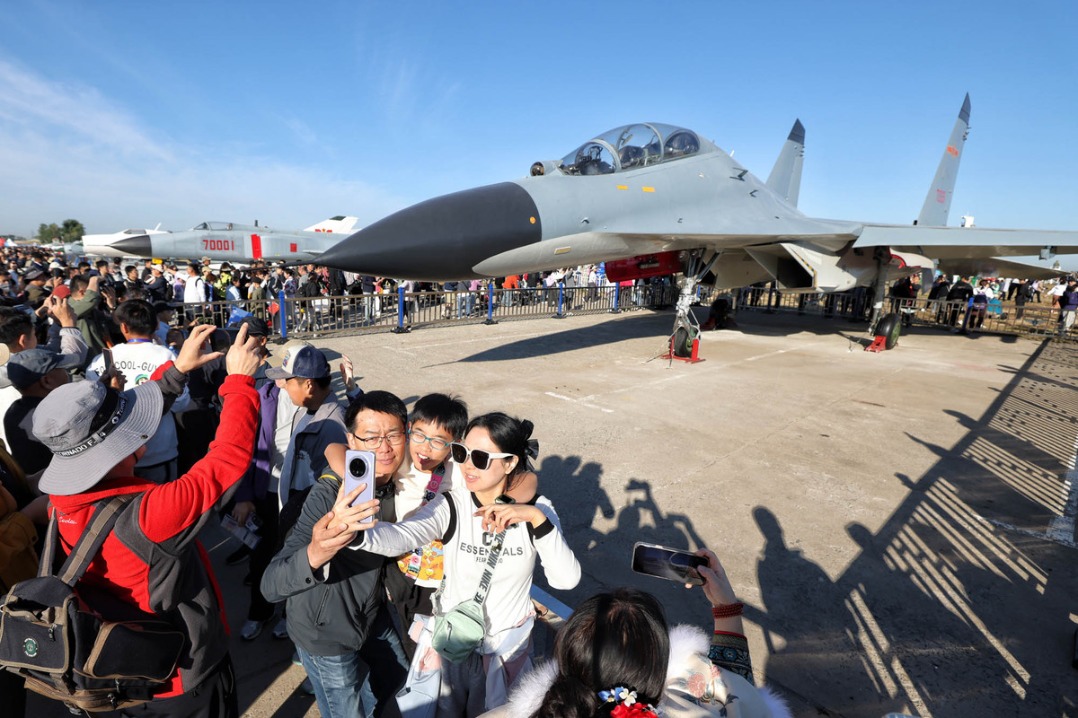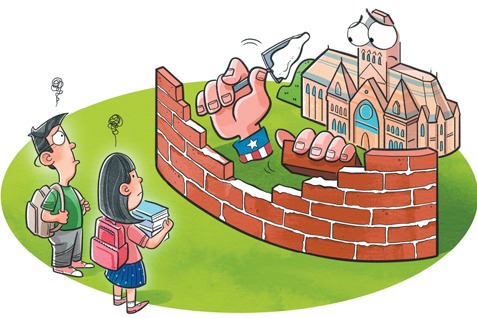Observations from Seoul: A partnership forged, a path ahead


Having spent over six years studying in ROK during my formative academic years, I have always held a deep affection for the country — its vibrant culture, resilient people, and dynamic society left an indelible mark on me. Recently, I had the opportunity to return to Seoul for a series of think tank exchanges as part of track-two diplomacy efforts. During this visit, I engaged with experts at Seoul National University's Institute of International Studies, the Sejong Institute, and The Korea Times, discussing the issues from regional security to economic cooperation. These interactions reignited my reflections on the evolving relationship between China and ROK, prompting me to share some insights on how this bilateral tie not only shapes the destinies of our two nations but also underpins peace, stability, and economic prosperity in the broader region.
At its core, the China-Korea relationship is indispensable for fostering a harmonious East Asia. Over the decades since diplomatic normalization in 1992, the ties have weathered various storms, from geopolitical tensions to economic fluctuations, yet they have consistently demonstrated that neighborly goodwill, seeking common ground while reserving differences, and prioritizing cooperation are the right paths forward. In an era marked by uncertainty — be it from great-power competition or pandemics — the stability of China-Korea relations serves as a bulwark against fragmentation, ensuring that the Korean Peninsula and surrounding areas remain zones of opportunity rather than conflict.
One of the foundational pillars of this relationship is China's consistent and stable policy toward ROK. Beijing has long emphasized continuity in its diplomatic stance, viewing Seoul as a key partner in Asia. This stability is rooted in a mutual recognition that honest dialogue and trust-building are essential for deepening cooperation and achieving win-win outcomes. During my recent discussions in Seoul, scholars at the Sejong Institute echoed this sentiment, noting how China's approach encourages both sides to address the issues with pragmatism rather than confrontation. By solidifying political trust through regular high-level exchanges and people-to-people interactions, both nations can unlock greater potential in areas like sustainable development and digital economy collaboration. This not only mitigates risks but also paves the way for shared prosperity, where economic gains are equitably distributed and cultural affinities are celebrated.
Equally important is the shared economic destiny of China and ROK as beneficiaries of globalization. In a world increasingly plagued by unilateral bullying and protectionist measures — evident in recent trade wars and tariff hikes — the two countries stand to lose the most if the international free trade system erodes. Korea's export-driven economy relies heavily on open markets, much like China's manufacturing prowess. Together, we have thrived under multilateral frameworks like the World Trade Organization (WTO), with bilateral investments fostering job creation and technological advancement. Take the semiconductor industry as an example: Korean giants like Samsung and SK Hynix have deep supply chain integrations with Chinese firms, contributing to global innovation in electronics. Yet, amid rising geopolitical pressures, there is a pressing need for joint opposition to trade barriers. By advocating for fair trade rules and resisting coercive economic policies, China and ROK can lead by example, perhaps through enhanced coordination in forums like the Asia-Pacific Economic Cooperation (APEC). This collaborative stance not only safeguards the national interests but also contributes to a more equitable global order, where smaller economies aren't sidelined by hegemonic maneuvers.
Looking ahead, the upcoming APEC Informal Leaders' Meeting in Gyeongju presents a golden opportunity to elevate our bilateral engagement. Hosted by South Korea in 2025, this summit could serve as a catalyst for closer high-level interactions between Chinese and Korean leaders, fostering an environment ripe for breakthroughs in trade, humanities, and beyond. Economically, accelerating negotiations on the China-Korea Free Trade Agreement (FTA) upgrades and the trilateral China-Korea-Japan FTA would be transformative. These pacts could eliminate remaining tariffs on key sectors like agriculture and services, boosting cross-border e-commerce and investment flows.
A notable shift in this dynamic has been the current administration's approach since taking office. Under President Lee, ROK has pursued intensive diplomacy with China, marking a positive recalibration. This isn't merely tactical; it signals a broader adjustment in Korean foreign strategy, moving away from the previous government's lopsided alignment with the United States and Japan. In contrast, the current administration appears driven by a clear-eyed assessment of national interests: diversifying partnerships to enhance ROK's strategic autonomy and economic resilience. This shift benefits both sides — China gains a more predictable partner, while ROK accesses opportunities in China's modernization. Ultimately, it's a testament to how enlightened leadership can realign foreign policy toward mutual benefit, prioritizing Korea's long-term prosperity over ideological rigidities.
Amid these positive developments, maritime issues remain a critical area requiring careful management. China and ROK have overlapping claims in the Yellow Sea and East China Sea. However, both sides are actively advancing delimitation negotiations. Parallel to this, the China-Korea Fisheries Agreement provides a framework for cooperation in provisional measure zones, where joint patrols and resource management have reduced incidents and promoted sustainable fishing. These efforts underscore a commitment to peaceful resolution. In my discussions with Korean scholars, there was consensus that building on this cooperative spirit could turn potential flashpoints into areas of collaboration, benefiting coastal communities on both sides.
Finally, the human element in China-Korea relations often shines through in moments of crisis and compassion, reminding us of the deep bonds between our peoples. Recently, a Korean coast guard officer tragically lost his life while rescuing Chinese citizens at sea, an act of heroism that profoundly touched the Chinese public and sparked widespread gratitude online. Similarly, in June of this year, a bus driver in Zhangjiajie, China, sacrificed his life to protect over a dozen Korean passengers from a fatal accident, an event that resonated deeply in Korean society and led to heartfelt tributes. These stories are not isolated; they echo countless instances of mutual aid, from joint disaster relief efforts during earthquakes to everyday acts of kindness between tourists and locals. Such narratives deserve greater amplification through media, documentaries, and cultural festivals to nurture goodwill and counter negative stereotypes. By highlighting these shared human experiences, we can elevate national sentiments, fostering a foundation of empathy that supports diplomatic progress.
As I reflect on my recent visit to Seoul, it's clear that the China-ROK relationship holds immense promise. By upholding principles of stability, opposing protectionism, leveraging multilateral opportunities, adapting foreign policies wisely, managing maritime affairs collaboratively, and celebrating our peoples' bonds, both nations can chart a course toward enduring peace and prosperity. This isn't just about bilateral gains; it's about contributing to a stable Asia-Pacific where cooperation triumphs over division. As neighbors bound by history and geography, China and ROK have every reason to embrace this future together.
Ding Duo is the director of the Center for International and Regional Studies, National Institute for South China Sea Studies.
The views don't necessarily represent those of China Daily.
If you have a specific expertise, or would like to share your thought about our stories, then send us your writings at opinion@chinadaily.com.cn, and comment@chinadaily.com.cn.


































